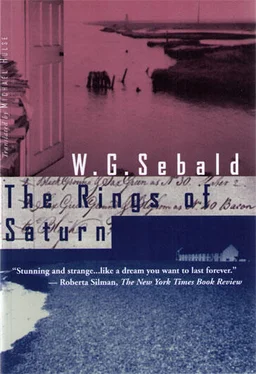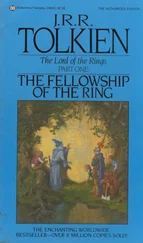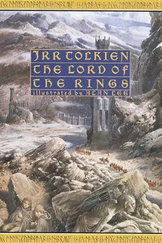Michael was nine and a half when, in November 1933, with his siblings, his mother, and her parents, he came to England. His father had already left Berlin several months before, and was installed in one of those unheatable stone houses in Edinburgh, where, wrapped in woollen blankets, he pored over dictionaries and textbooks until late at night; for, despite having been professor of paediatrics at the Charité, he now, in his fifties, had to sit his medical examinations all over again in a language unfamiliar to him if he was to continue in practice as a doctor. Michael later wrote in his memoirs about the fears and anxieties of the family as they travelled toward the unknown, fears which came to a head in the customs hall in Dover as they looked on with horro as Grandfather's pair of budgerigars, which had so far survived the journey unharmed, were impounded. It was the loss of the two pet birds, Michael writes, and having to stand by powerless and see them vanish for ever behind some sort of screen, that brought us up against the whole monstrosity of changing countries under such inauspicious circumstances. The disappearance of those budgerigars at Dover customs marked the beginning of the disappearance of his Berlin childhood behind the new identity that he assumed little by little over the next decade. How little there has remained in me of my native country, the chronicler observes as he scans the few memories he still possesses, barely enough for an obituary of a lost boyhood. The mane of a Prussian lion, a Prussian nanny, caryatids bearing the globe on their shoulders, the mysterious sounds of traffic and motor horns rising from Lietzenburgerstraße to the apartment, the noise made by the central-heating pipe behind the wallpaper in the dark corner where one had to stand facing the wall by way of punishment, the nauseating smell of soapsuds in the laundry, a game of marbles in a Charlottenburg park, barley malt coffee, sugar-beet syrup, codliver oil, and the forbidden raspberry sweets from Grandmother Antonina's silver bonbonniere — were these not all merely phantasms, delusions, that had dissolved into thin air? The leather seats in grandfather's Buick, Hasensprung tramstop in the Grunewald, the Baltic coast, Heringsdorf, a sand dune surrounded by pure nothingness, the sunlight and how it fell. . Whenever a shift in our spiritual life occurs and fragments such as this surface, we believe we can remember. But in reality, of course, memory fails us. Too many buildings have fallen down, too much rubble has been heaped up, the moraines and deposits are insuperable. If I now look back to Berlin, writes Michael, all I see is a darkened background with a grey smudge in it, a slate pencil drawing, some unclear numbers and letters in a gothic script, blurred and half wiped away with a damp rag. Perhaps this blind spot is also a vestigial image of the ruins through which I wandered in 1947 when I returned to my native city for the first time to search for traces of the life I had lost. For a few days I went about like a sleepwalker, past houses of which only the façades were left standing, smoke-blackened brick walls and fields of rubble along the never-ending streets of Charlottenburg, until one afternoon I unexpectedly found myself in front of the Lietzenburgerstraße building where we had lived and which had escaped destruction — absurdly, as it seemed to me. I can still feel the cold breath of air that brushed my brow as I entered the hallway, and I recall that the cast-iron balustrade on the stairs, the stucco garlands on the walls, the spot where the perambulator had been parked, and the largely unchanged names on the metal letter boxes, appeared to me like pictures in a rebus that I simply had to puzzle out correctly in order to cancel the monstrous events that had happened since we emigrated. It was as if it were now up to me alone, as if by some trifling mental exertion I could reverse the entire course of history, as if — if I desired it only — Grandmother Antonina, who had refused to go with us to England, would still be living in Kantstraße as before; she would not have gone on that journey, of which we had been informed by a Red Cross postcard shortly after the so-called outbreak of War, but would still be concerned about the wellbeing of her goldfish, which she washed under the kitchen tap every day and placed on the window ledge when the weather was fine, for a little fresh air. All that was required was a moment of concentration, piecing together the syllables of the word concealed in the riddle, and everything would again be as it once was. But I could neither make out the word nor bring myself to mount the stairs and ring the bell of our old flat. Instead I left the building with a sick feeling in the pit of my stomach and walked and walked, aimlessly and without being able to grasp even the simplest thought, well past the Westkreuz or the Hallesches Tor or the Tiergarten, I can no longer say where; all I know is that at length I came upon a cleared site where the bricks retrieved from the ruins had been stacked in long, precise rows, ten by ten by ten, a thousand to every stacked cube, or rather nine hundred and ninety-nine, since the thousandth brick in every pile was stood upright on top, be it as a token of expiation or to facilitate the counting. If I now think back to that desolate place, I do not see a single human being, only bricks, millions of bricks, a rigorously perfected system of bricks reaching in serried ranks as far as the horizon, and above them the Berlin November sky from which presently the snow would come swirling down — a deathly silent image of the onset of winter, which I sometimes suspect may have originated in a hallucination, especially when I imagine that out of that endless emptiness I can hear the closing bars of the Freischütz overture, and then, without cease, for days and weeks, the scratching of a gramophone needle. My hallucinations and dreams, Michael writes elsewhere, often taken place in a setting reminiscent partly of the metropolis of Berlin and partly of rural Suffolk. For instance, I may be standing at a window on the upper floor of our house, but what I see is not the familiar marshes and the willows thrashing as they always do, but rather, from several hundred yards up, acres and acres of allotment gardens bisected by a road, straight as an arrow, down which black taxi cabs speed out of the city in the direction of the Wannsee. Or I am returning at dusk from a long journey. With my rucksack over my shoulder, I walk the last stretch towards our house, in front of which, for some unknown reason, a motley assortment of vehicles is parked, immense limousines, motorized wheelchairs with enormous hand brakes and bulbous horns at the side, and an ominous ivory-coloured ambulance with two deaconesses sitting in it. Under their watchful eyes I hesitantly cross the threshold, and as I do so I no longer know where I am. The rooms are dimly lit, the walls are bare, the furniture is gone. All manner of silver utensils lie on the parquet floor, heavy, ornate knives, spoons and forks as well as fish cutlery for countless people, to dine on a leviathan. Two men in grey linen coats are taking down a tapestry. Crates of china are brimming with wood shavings. In my dream more than an hour goes by before I am able to grasp that I am not in the Middleton house but in the rambling Bleibtreustraße flat where my mother's parents lived, the museum-like rooms of which impressed me very nearly as much, on my childhood visits, as the splendid suites in the palace of Sanssouci. And now they are all gathered here, my Berlin relatives, my German and my English friends, my in-laws, my children, the living and the dead. Unseen by them, I walk through their midst, from one room to another, through galleries, halls and passages thronged with guests until, at the far end of an imperceptibly sloping corridor, I come to the unheated drawing room that used to be known, in our house in Edinburgh, as the Cold Glory. There my father sits, on a stool that is far too low, practising the cello, while Grandmother is lying on a high table, dressed in her best. The gleaming tips of her patent-leather shoes point towards the ceiling, she has spread a grey silk handkerchief over her face, and for days, as always during her regularly recurring bouts of melancholy, she has not uttered a single word. From thd window, far off, I see a Silesian landscape. A golden cupola glints from the depth of a valley enclosed by blue forested hills. This is Myslowitz, a place somewhere in Poland, I hear my father say, and as I turn I see the white vapour that had carried his words lingering in the ice-cold air.
Читать дальше












